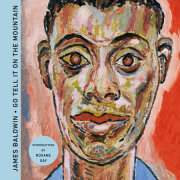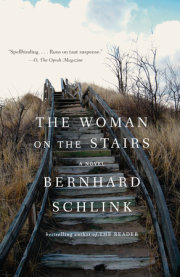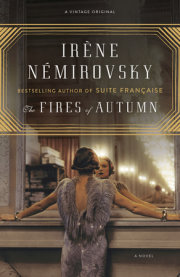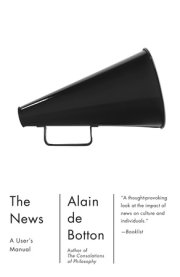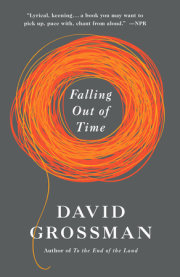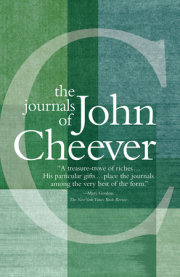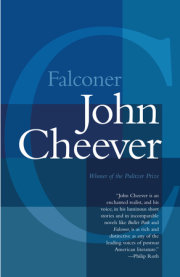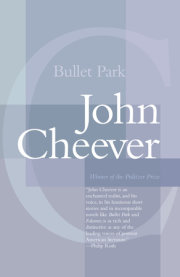Chapter I
The snow began to fall into St. Botolphs at four-fifteen on Christmas Eve. Old Mr. Jowett, the stationmaster, carried his lantern out onto the platform and held it up into the air. The snowflakes shone like iron filings in the beam of his light, although there was really nothing there to touch. The fall of snow exhilarated and refreshed him and drew him—full-souled, it seemed—out of his carapace of worry and indigestion. The afternoon train was already an hour late, and the snow (whose whiteness seems to be a part of our dreams, since we take it with us everywhere) came down with such open-handed velocity, such swiftness, that it looked as if the village had severed itself from its context on the planet and were pressing its roofs and steeples up into the air. The remains of a box kite hung from the telephone wires overhead—a reminder of the year’s versatility. “Oh, who put the overalls in Mrs. Murphy’s chowder?” Mr. Jowett sang loudly, although he knew that it was all wrong for the season, the day and dignity of a station agent, the steward of the town’s true and ancient boundary, its Gate of Hercules.
Going around the edge of the station he could see the lights of the Viaduct House, where at the very moment a lonely traveling salesman was bending down to kiss a picture of a pretty girl in a mail-order catalogue. The kiss tasted faintly of ink. Beyond the Viaduct House were the rectilinear lights of the village green, but the village itself was circular and did not conform in any way to the main road that wound seaward to Travertine, or to the railroad track, or even to the curve of the river, but to the pedestrian needs of its inhabitants, putting them within walking distance of the green. Thus it was the shape, really, of an ancient place, and seen from the air on a fairer day might have been in Etruria. Mr. Jowett could see into the windows, across from the Viaduct House and above the ship chandler’s, of the Hastings apartment, where Mr. Hastings was decorating the Christmas tree. Mr. Hastings stood on a ladder, and his wife and children passed him ornaments and told him where to hang them. Then suddenly he bent and kissed his wife. It was the sum of his feeling for the holiday and for the storm, Mr. Jowett thought, and it made him very happy. He seemed to feel happiness in the stores and houses, happiness everywhere. Old Dog Tray trotted happily up the street, on his way home, and Mr. Jowett thought affectionately of the dogs of St. Botolphs. There were wise dogs, foolish dogs, bloodthirsty and thieving dogs, and as they raided clotheslines, upset garbage pails, bit the mailman and disturbed the sleep of the just, they seemed like diplomats and emissaries. They seemed, in their chaffing way, to keep the place together.
The last of the shoppers were going home, carrying a pair of mittens for the ash man, a brooch for Grandmother and a Teddy bear stuffed with sawdust for baby Abigail. Like Old Dog Tray, everybody was going home, and everybody had a home to go to. It was one place in a million, Mr. Jowett thought. Even with his pass, he had never wanted much to travel. The village, he knew, had, like any other, its brutes and its shrews, its thieves and its perverts, but like any other it meant to conceal these facts under a shine of decorum that was not hypocrisy but a guise or mode of hope. At that hour most of the inhabitants were decorating their Christmas trees. The druidical significance of bringing a green tree into the house at the solstice had certainly never crossed the minds of any of the natives, but they treated their chosen trees (at the time of which I’m writing) with more instinctive respect than is the case today. The trees were not, at the end of their usefulness, stuck into ashcans or fired into the ditch by the railroad tracks wearing a few strands of angel’s hair. The men and boys burned them ceremoniously in the back yard, admiring the surge of flame and the smell of balsam smoke. People did not, as they presently would, say that the Tremaines’ tree was skinny, that the Wapshots’ tree had a bare place in the middle, that the Hastings’ tree was stumpy and that the Guilfoyles must have suffered economic reverses, since they had only paid fifty cents for their tree. Fancy illuminations, competitiveness and disregard for the symbols involved would all come, but they would come later. The lights, at the time of which I am writing, were spare and rudimentary and the ornaments were commemorative like the table silver, and were handled respectfully, as if one were counting over the bones of the family. They were, naturally, in disrepair—the birds without tails, the bells without clappers and the angels sometimes without wings. It was a conservatively dressed population that performed this tree-trimming ceremony. All the men wore trousers and all the women wore skirts, excepting Mrs. Wilston, who was a widow, and Alby Hooper, who was an itinerant carpenter. They had been drinking bourbon for two days and wore nothing at all.
On the ice pond—Parson’s Pond at the north end of town—two boys were struggling to keep clear enough ice for a hockey game in the morning. They skated back and forth, pushing coal shovels ahead of them. It was an impossible task. This was clear to both of them, and yet they continued to go back and forth, toward and away from the roar of the falls at the dam, with an unaccountable feeling of eagerness. When the snow got too deep for skating, they propped their shovels against a pine tree and sat down in its shelter to unlace their skates.
“You know, Terry, I miss you when you’re away at school.”
“They throw so much work at me in school that I don’t have a chance to miss anyone.”
“Smoke?”
“No, thanks.”
The first boy took from his pocket a pouch full of sassafras root that had been ground in a clean pencil sharpener, poured some of this onto a square of coarse, yellow toilet paper, and rolled a loose cigarette that flared up like a torch, lighting his thin face, with its momentary look of suavity, and dropping embers all over his trousers. Drawing on his cigarette, he could taste its components—the raw gassy flavor of burning toilet paper and the sweetness of sassafras. He shuddered as it touched his lungs, and yet he was rewarded by his smoke with a sense of wisdom and power. When their skates were unlaced and the fire in the cigarette had died, they started back toward the village. The first house they passed was the Ryders’, distinguished in St. Botolphs because, for as long as anyone could remember, the parlor window shades had been drawn and the parlor door locked. What did the Ryders have hidden in their parlor? There was no one in the village who hadn’t wondered. Was there a dead body there, a perpetual-motion machine, a collection of eighteenth-century furniture, a heathen altar, a laboratory for hellish experiments on dogs and cats? People had made friends of the Ryders in the hope of getting into their parlor, but no one had ever succeeded. The Ryders themselves, a peculiar but not really unfriendly family, were decorating their tree in the dining room, which was where they lived. Next to the Ryders’ was the Tremaines’ and, passing here, the boys could see a gleam of something yellow—copper or brass—a clue to the richness of color in that house. Traveling through Persia as a young man, Dr. Tremaine had cured the shah of boils and had been rewarded with rugs. The Tremaines had rugs on their tables, their piano, their walls and their floors, and the brilliant dyes could be seen through the lighted windows. Suddenly, for one of the boys—the smoker—the bitterness of the storm and the warmth of color in the Tremaines’ house seemed to converge. It was like a discovery, and so exciting that he began to run. His friend jogged along beside him to the corner, where they could hear the bells of Christ Church.
The rector was about to bless the carolers who stood in his living room. A rancid and exciting smell of the storm came from their clothes. The room was neat and clean and warm, and had been—before they entered in their snowy clothes—fragrant. Mr. Applegate had cleaned the room himself, they knew, because he was unmarried and did not employ a housekeeper. He did not enjoy having women in his sanctuary. He was a tall man with an astonishing and somehow elegant curvature of the spine, formed by an enlarged lower abdomen, which he carried in a stately and contented way, as if it contained money and securities. Now and then he patted his paunch—his pride, his friend, his solace, his margin for error. With his spectacles on he gave the impression of a portly and benign ecclesiastic, but when he removed his eyeglasses to clean them his gaze was penetrating and haggard and his breath smelled of gin.
His life was a lonely one, and the older he grew the more harried he was by doubts about the Holy Ghost and the Virgin Mary, and it was true that he drank. When he first took over the parish, the spinsters had embroidered his stoles and illuminated his prayer books, but when it appeared that he was not interested in their attentions, they urged the vestry and bishop to discharge him as a drunk. Drunkenness was not what infuriated them. His claim to be celibate, his unmarriedness, had offended their womanhood and they longed to see him disgraced, defrocked, scourged and harried down the Wilton Trace past the old pill factory to the village boundaries. On top of this, Mr. Applegate had recently begun to suffer from an hallucination. It seemed to him that as he passed the bread and wine he could hear the substance of his parishioners’ prayers and petitions. Their lips did not move, so he knew this was an hallucination, a kind of madness, but as he moved from one kneeling form to another he seemed to hear them asking, “Lord God of Hosts, shall I sell the laying hens?” “Shall I take up my green dress?” “Shall I cut down the apple trees?” “Shall I buy a new icebox?” “Shall I send Emmett to Harvard?” “ ‘Drink this in remembrance that Christ’s Blood was shed for thee, and be thankful,’ ” he said, hoping to scour his mind of this galling illusion, but he still seemed to hear them asking, “Shall I fry sausage for breakfast?” “Shall I take a liver pill?” “Shall I buy a Buick?” “Shall I give Helen the gold bracelet or wait until she’s older?” “Shall I paint the stairs?” It was the feeling that all exalted human experience was an imposture, and that the chain of being was a chain of humble worries. If he had confessed to the vice of drinking and to his serious doubts about blessedness, he would end up licking postage stamps in some diocesan office, and he felt too old for this. “Almighty God,” he said loudly, “bless these Thy servants in the task of celebrating the birth of Thine only Son, by Whom and with Whom in the unity of the Holy Ghost all honor and glory be to Thee, O Father Almighty world without end. Amen!” The blessing smelled distinctly of juniper. They sang an Amen and a verse of “Christus Natus Hodie.”
Absorbed and disarmed by the business of singing, their faces seemed unusually open, like so many windows, and Mr. Applegate was pleased to look into them, they seemed at that moment so various. First was Harriet Brown, who had worked for the circus, singing romantic music for the living statues. She was married to a wastrel, and it was she who kept the family together these days, baking cakes and pies. Her life had been stern, and her pale face was sternly marked. Next to Harriet stood Gloria Pendleton, whose father ran the bicycle-repair shop. They were the only colored family in the village. The ten-cent necklace that Gloria wore seemed to be of inestimable value, and she dignified everything she touched. This was not a primitive or a barbaric beauty, it was the extraordinary beauty of race, and it seemed to accentuate the plumpness and the paleness of Lucille Skinner, who stood on her right. Lucille had studied music in New York for five years. Her education was estimated to have cost in the neighborhood of ten thousand dollars. She had been promised an operatic career, and wouldn’t your head swim at the thought of San Carlo and La Scala, that uproarious applause that seems to be the essence of the world’s best and warmest smile! Sapphires and chinchilla! But the field is crowded, as everyone knows, and dominated by unscrupulous people, and she had come home to make an honest living teaching the piano in her mother’s front parlor. Her love of music—it was true of most of them, Mr. Applegate thought—had been a consuming and disenchanting passion. Next to Lucille stood Mrs. Coulter, the wife of the village plumber. She was Viennese, and she had been a seamstress before her marriage. She was a frail, dark-skinned woman with shadows like lampblack under her eyes. Beside her stood old Mr. Sturgis, who wore a celluloid collar and a brocade ascot, and who had sung in public whenever possible ever since he had been admitted to his college glee club, fifty years ago.
Behind Mr. Sturgis stood Miles Howland and Mary Perkins, who would be married in the spring but who had been lovers since last summer, although no one knew. He had first undone her clothes in the pine copse behind Parson’s Pond during a thunderstorm, and after this they had thought mostly of how, where, when next—moving, on the other hand, through a world lit by the intelligent and trusting faces of their parents, whom they loved. They took a picnic lunch to Bascom’s Island and didn’t put their clothing on the whole day long. Lovely, it was lovely. Was this sinful? Would they burn in Hell, suffer agues and strokes? Would he be killed by a bolt of lightning during a baseball game? Later that same Christmas Eve, he would serve on the altar at Holy Communion, wearing fresh white and scarlet and raking the dark church, as he appeared to pray, for the shape of her face. In the light of all the vows he had taken, that was heinous, but how could it be, since if his flesh had not informed his spirit he would never have known this sense of strength and lightness in his bones, this fullness of heart, this absolute belief in the glad tidings of Christmas, the star and the kings? If he walked her home from church in the storm her kind parents might ask him to spend the night and she might come to him.
Copyright © 2021 by John Cheever. All rights reserved. No part of this excerpt may be reproduced or reprinted without permission in writing from the publisher.





